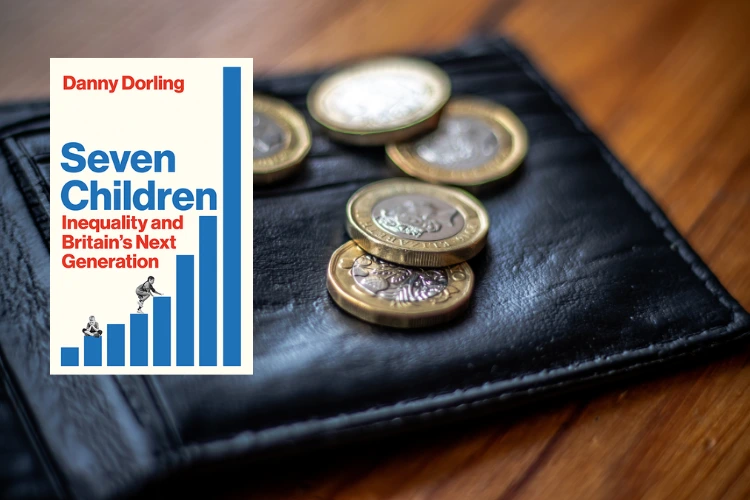
Dorling’s latest book, Seven Children, uncovers exactly how poverty and inequality are affecting Britain’s next generation
By
The fictional children described in this book are each a statistical construct. However, as author Danny Dorling explains, their daily experiences and socioeconomic positions are based on statistical reality. Each fictional character was born in the UK in 2018, which Dorling asserts was a more unfair place to be born than at any time since the early 1930s. ‘The years 2018–23 were some of the toughest for British children and their families since the Second World War,’ he says.
The narrative relates the lives of seven children, each assigned a day of the week, starting with Anna, Monday’s child. ‘She is representative of the average child among the poorest seventh of all children,’ Dorling says.
‘Her position in the middle of that poorest seventh means that some 93 per cent of children in Britain are – and will be, for at least some years to come – better off than her, while another seven per cent are poorer than her.’
Enjoying Jules’ review? Check out more of his recommended reads:
Someone on Anna’s mother’s meagre income can no longer afford to cook using their oven, but she has not lost hope. Just because her life appears to have been stuck in a rut for the past two decades, it doesn’t mean it will always be.
Anna might be one of the lucky few who overcome their disadvantaged start in life and join a slightly better-off tranche of British society, or she could be unlucky and, in the future, end up even poorer than her mum.
Each of the protagonists has a different story to tell, one that reflects growing destitution at the bottom of British society and sharply curtailed living standards at the top. Austerity, Brexit, a pandemic and high inflation have all marked these children’s formative years.
The author’s narrative is hardly a cheerful one. ‘The poverty problem is much deeper and wider than it was shortly after our seven children were born,’ he says. ‘The middle third of British families are barely out of poverty and slowly and surely, we are learning to accept huge social divisions as inevitable and apparently unchanging.’
This is an impassioned and alarming narrative that concludes with the author telling the reader that our obligation is to care for these children now, ‘to care enough, to give a damn, to see that their lives – each one of them – are perfectly ordinary.’




